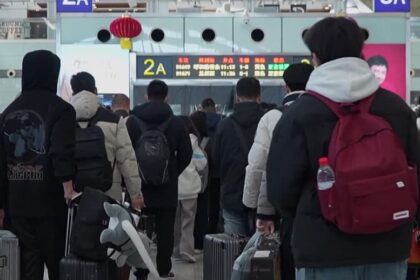Understanding Thailand’s Cultural Etiquette: More Than Just Smiles
Thailand, often called the “Land of Smiles,” is renowned for its hospitality, vibrant street life, and stunning temples. But beneath the welcoming exterior lies a complex web of cultural norms and etiquette that can catch even seasoned travelers off guard. For tourists, understanding these unwritten rules is essential—not just to avoid embarrassment, but to show respect for Thai people and their traditions. This guide synthesizes expert advice and local perspectives to help visitors navigate Thailand’s unique social landscape.
Why Etiquette Matters in Thailand
Respect for tradition is deeply ingrained in Thai society. While locals are generally forgiving of foreigners’ missteps, repeated breaches of etiquette can lead to frustration or even social exclusion. As tourism continues to boom, Thais are increasingly aware of—and sometimes weary of—tourist behavior that disregards local customs. As one satirical commentary from The Thaiger puts it, “Thailand is watching and not in the amused by your antics way, more like documenting this for a future viral video way.”
Understanding and following basic etiquette not only helps visitors avoid awkward situations but also enriches their travel experience, opening doors to genuine connections and deeper cultural insights.
Essential Dos and Don’ts for Tourists
While every culture has its own set of social rules, Thailand’s are particularly nuanced. Here are some of the most important guidelines for visitors:
Dress Modestly—Especially at Temples
One of the most common faux pas among tourists is inappropriate dress, particularly when visiting sacred sites. Temples are not yoga studios or Instagram backdrops—they are places of worship. Both men and women should cover their shoulders and knees, and avoid revealing or flashy clothing. Shoes must be removed before entering temple buildings, and hats should be left outside. As The Detroit News notes, “While they may not be called out on the infractions by the locals, they may be, as we said, attracting ‘bad juju’ with their disrespect of the Buddhist faith and customs.”
Remove Your Shoes Indoors
It is customary to remove your shoes before entering homes, temples, and even some shops or restaurants. This gesture shows respect and helps keep interiors clean. If in doubt, look for a pile of shoes at the entrance or observe what others are doing.
Respect the Head and Feet
In Thai culture, the head is considered the most sacred part of the body, while the feet are the lowest and dirtiest. Never touch someone’s head, even playfully, and avoid pointing your feet at people, religious images, or food. Don’t prop your feet up on tables or chairs, and never step on Thai currency, which bears the image of the King.
Return the Wai Greeting
The traditional Thai greeting, known as the wai, involves pressing your palms together in a prayer-like gesture and bowing slightly. While tourists aren’t expected to initiate a wai, it is polite to return one when greeted. Monks and the King are exceptions—they do not return wais.
Keep Your Cool—Always
Public displays of anger or frustration are frowned upon in Thailand. Maintaining composure, or “saving face,” is highly valued. If things go wrong, a smile and a calm demeanor will earn you respect. As TripSavvy advises, “Don’t lose your cool: Shouting, blowing your top, or displaying strong emotions is generally frowned upon in Thailand.”
Be Mindful of Public Behavior
Speaking loudly, especially in public transport or quiet spaces, is considered rude. Avoid filming or photographing locals without permission, and refrain from using people as props for social media content. Temples and monks should be treated with the utmost respect—never touch a monk, and women should avoid physical contact with monks entirely.
Don’t Bargain Where It’s Not Appropriate
While bargaining is common in markets, it is not acceptable in chain stores, supermarkets, or restaurants. Attempting to haggle in these settings can come across as disrespectful or ignorant of local business practices.
Understand the Many Meanings of the Thai Smile
Thais are famous for their smiles, but not all smiles mean happiness. A smile can express embarrassment, frustration, or even polite disagreement. Learning to read these subtle cues can help visitors navigate social situations more smoothly. As Thailand Insider explains, “A smile in Thailand can mean many things: embarrassment, frustration, apprehension, and much more.”
Special Considerations: The King, Monks, and National Symbols
Thailand’s reverence for the monarchy is enshrined in law. Disrespecting the King or royal family, even unintentionally, can result in severe penalties. This includes defacing currency or making negative comments about the monarchy. Similarly, monks are highly respected, and special rules apply when interacting with them—especially for women, who should never touch a monk or hand objects directly to them.
Common Mistakes to Avoid
Even well-meaning tourists can stumble into cultural pitfalls. Here are some frequent mistakes and how to avoid them:
- Touching someone’s head or pointing your feet at people or religious objects
- Wearing revealing clothing in public or at temples
- Raising your voice or showing anger in public
- Filming or photographing people without consent
- Failing to remove shoes when required
- Disrespecting the King or royal symbols
- Public displays of affection, which are considered inappropriate in most settings
In Summary
- Thailand’s cultural etiquette is rooted in respect, modesty, and harmony—understanding these values is key for visitors.
- Dress modestly, especially at temples, and always remove your shoes when required.
- Never touch someone’s head or point your feet at people or sacred objects.
- Return the wai greeting and maintain composure in public, even when frustrated.
- Respect the King, monks, and national symbols—disrespect can have serious consequences.
- Be mindful of your behavior, avoid loud conversations, and always ask before filming or photographing locals.
- Following these guidelines will help you avoid embarrassment and ensure a more meaningful, respectful experience in Thailand.












